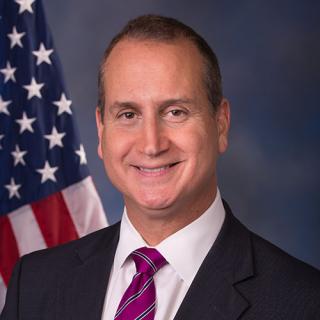National Security, Department of State, and Related Programs

Chairman Mario Diaz-Balart
HT-2 The Capitol
(202) 225-2041
Majority | Minority |
| Mario Diaz-Balart – Chair | Lois Frankel – Ranking Member |
| Guy Reschenthaler | Grace Meng |
| Julia Letlow | Norma Torres |
| Juan Ciscomani | Mike Quigley |
| Chuck Edwards – Vice Chair | |
| John Moolenaar | |
| Mark Alford |
Outside Witness Testimony Instructions
Recent Activity
To ensure every Member of Congress has an opportunity to participate in the annual appropriations process, Members may submit programmatic, language, and Community Project Funding requests to the Committee using the electronic portal available here.
Mr. Speaker, I rise today to offer House Resolution 7217, the Israel Security Supplemental Appropriations Act of 2024. This bill provides $17.6 billion in emergency supplemental appropriations, which will provide needed military assistance to America's great ally Israel and support U.S. military forces operating in the region.
I rise in support of the Israel Security Supplemental Appropriations Act to provide much-needed assistance to our democratic and unwavering ally, Israel, as it combats terrorism against its citizens.
I commend my colleague, Chairman Ken Calvert, for his leadership in drafting this critical legislation, as well as Chairwoman Kay Granger. I want to thank Speaker Mike Johnson and Majority Leader Steve Scalise for bringing this bill to the House floor.
Mr. Speaker, I rise today in support of H.R. 7217, a bill that will provide additional support for Israel. I want to thank Chairman Calvert for his leadership on this bill.
Nearly four months ago, we watched Hamas brutally attack the Israeli people. Unfortunately, the situation in the region has only gotten worse.
Israel, and now U.S. Forces, have been attacked by terrorist groups backed by Iran. Funding is needed to address the growing threats we face.
Madam Speaker, I rise today in support of H.R. 5860, a bill that keeps the government open until November 17th.
While I would rather be here speaking on the floor about final appropriations bills, I want members to understand why passing this short-term funding bill today is so important.
First, I want to explain how we find ourselves in this situation.
Just nine months ago, when Republicans took back the Majority in the House, our commitment was to Regular Order for appropriations.
Madam Chairwoman, I am proud to speak on the Fiscal Year 2024 Department of State, Foreign Operations, and Related Programs appropriations bill for floor consideration today.
If you've read the bill, you know it is very straightforward.
If you are a friend or an ally of the United States, this bill supports you.
If you are an adversary or are cozying up to our adversaries, then frankly, you will not like this bill.
I am extremely proud of this bill, which was carefully and thoughtfully developed over many months.
As we continue our work on the Fiscal Year 2024 bills, I want to remind everyone of the situation we find ourselves in.
During the last Congress, trillions of dollars were spent outside of the appropriations process.
We have no choice but to take a hard look at the spending this Committee oversees.
The State and Foreign Operations appropriations bill before us strikes the right balance.
It funds important national security priorities while reducing spending on unnecessary programs.
